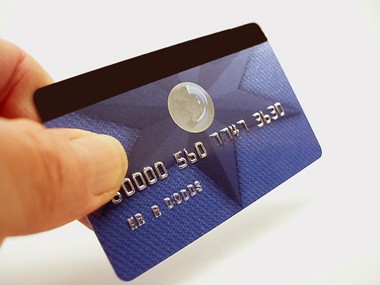1. Get A Copy of Your Credit Report
Although you can’t get your exact credit score for free, you can get a free copy of your credit report from each of the three credit bureaus (Experian, Equifax and TransUnion) once each year. To do so, visit AnnualCreditReport.com and request a report. AnnualCreditReport.com, by the way, is actually the only way to get your reports for free — the site was created in response to federal legislation requiring that the three national credit reporting companies inform consumers about their status. Despite their catchy commercials, companies like FreeCreditReport.com actually wind up charging you for expenses related to obtaining your credit report.
2. Make Sure You’re Aware of Any Existing Accounts
Typically, your credit report will show any accounts you have open — although different companies report to different credit bureaus, and some companies don’t seem to report at all. It’s easy to forget about credit accounts that you don’t actually use, like credit cards you stopped using but chose not to close the account ‘just in case.’ These credit accounts can easily represent the most likely upcoming dings to your credit: card companies and other lenders have started closing inactive accounts in order to limit their liability. As the amount of credit a person has goes down, so does their credit score. I’m not suggesting that you should start charging items to those inactive accounts, though — instead, it’s enough to be aware of them so that if your accounts do close, you won’t be taken by surprise.
3. Set Up Automatic Payments
One of the easiest credit score factors you can control is how good you are about making payments on your current balances. Even if you don’t usually carry a balance, making a payment or two late can cause a preventable dip in your credit score. A simple slip up, like forgetting to send a payment, can have some major consequences. While FICO scores will be offering more leniency for someone who misses only one payment, automatic payments can be a simple way of avoiding even one late payment and any problem at all. Late and missed payments can have ripple affects beyond your actual credit score as well — in some cases, including credit cards, a missed payment on one account can lead to a higher interest rate on another account.
4. Get Serious About Your Balances
One of the factors in a good credit score is how much credit you have available. That means that reducing your current balances has a direct connection to helping your credit score. That doesn’t mean that you have to pay off your entire balance immediately to improve your credit score, though: while it’s a good overall goal, just adding a few dollars to your minimum monthly payment is enough to at least get you started on an upwards trend. Moving around debt, say to a zero-interest credit card, doesn’t actually help with your overall credit score. While it may make the amount easier to pay off, it can be reflected in your credit score as an inability to manage your existing credit.
5. Keep Your Number of Cards Constant
While your available credit is a key factor in your credit score, opening a bunch of new credit cards just to increase the amount of credit you have available won’t really help. Instead, the system used to determine credit scores reads such a move as a need for more credit: if you open several cards in a short time span, credit reporting agencies assume that you plan to use that credit and might even be planning to get yourself into some trouble with it. Closing unused credit cards can also have a negative impact on your credit, so keeping your number of cards constant is usually the best compromise between getting the best credit card options and maintaining your good credit score. Your account age can also play into things, by the way. That first credit card you ever got, with its awful interest rate, may be an important part of your credit score. Think carefully before closing such an account.
Your Credit Score and You
Despite many ads to the contrary, there is really no way to fix your credit score in a hurry. The Fair Isaac Corporation works hard to make sure that credit scores indicate how you use credit over time, and the company knows what it’s doing. That means that you have to work on maintaining a good credit score long before you want to make a big purchase, like a house or a car. Since it’s not always predictable exactly when a person is going make those large purchases, it makes sense to make a good credit score an ongoing priority.
